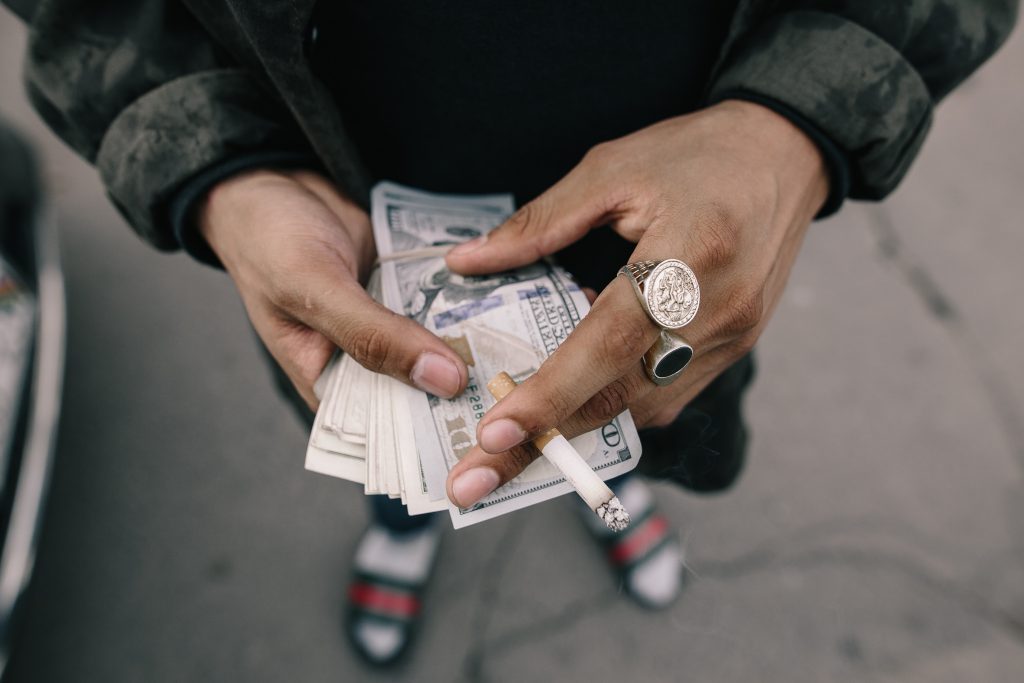
Should I ever Pay to Play?
Thousands of Afton artists have asked us over the years, “Should I ever Pay to Play? Is it ever worth it?” You’ve probably heard many musicians call these types of opportunities a scheme, a scam, or a ripoff. It’s a valid question. Since we were founded by musicians, for musicians our founders and many of our Booking Reps have actually performed at pay-to-play shows at some point in their music careers. Our founder remembers playing in several battle of the bands shows where his band was forced to pay $600 up front just to get on the show.
“From our experience, we’ve never felt that pay to play shows are worth it. It just was a large up front cost to our band, and the shows didn’t really seem any better than a normal show. So we started steering clear of battle of the bands, contests, and any promoter that asked us to pay $300 or $600 up front to get onto the bill. That’s a huge reason from day 1, we decided that we’d never ask Afton artists to pay us up front for a block of tickets, or make our artists pay for unsold tickets. It was kind of like, let’s treat artists the way we’d want to be treated. So we created a way to book artists for free without charging them anything out of pocket.” explains Ryan Kintz, co-founder of Afton Shows and www.MyAfton.com
Every artist needs to make their own decision. But here are a few “Pay to Play” schemes we’ve seen and what we think about them.
1. TRUE “PAY TO PLAY.”
The Promoter or Booking Agent will require an act to buy a block of tickets up front for face value. Then the act can sell them, not sell them, or give them out for free. The Promoter doesn’t really care because they already got paid. Example: Band is required to pay $400 up front for a block of 40 tickets at $10 face value.
In essence, the artist is paying outright for a slot on the show. But here’s what we’ve found. If artists are forced to pay up front for their tickets, that usually means they don’t know how to effectively promote and sell those tickets, so they end up giving them out for free. The problem is, when you give FREE tickets to people, in their mind, you just greatly devalued your own show. They didn’t pay for it, they didn’t earn it, and they have no skin in the game. So, they usually flake out and don’t attend.
You really need to weigh if shows with this type of up front, buy-in requirement are worth it or not. We don’t believe it’s worth it.
2. PAYING FOR UNSOLD TICKETS (PAY LATER)
Another scheme we’ve seen, is a Promoter or Booking Agent will require a band or rapper to sign a contract stating if they fall short on the tickets they agree to sell, the artist OWES the Promoter for the unsold tickets at face value. This sucks. Even though you don’t pay up front or out of pocket, if the Promoter doesn’t teach you how to effectively sell your tickets, you could end up 15 or 20 tickets short – which means you end up having to pay $150 to $200 for those unsold tickets at $10 each.
We don’t think artists should be “on the hook” like this. But many venues and Promoters still employ these types of practices.
3. TOUR BUY-ON
What we found interesting, is in the National Touring world for acts signed to record labels – pay to play is actually VERY prevalent and common. National tour promoters and national booking agencies don’t call this pay to play, they call it a “Tour Buy-On.”
Essentially, a national tour headliner will “sell” their opening tour slots to other small-mid sized signed artists. The headliner knows they won’t draw, but they are signed to a label and have great music. So the headliner charges them $300, $500 or even thousands of dollars PER SHOW on the tour to have the privilege of being the tour support! A tour buy-on at $500 per show for 30 tour dates could mean the tour support act’s record label (or the band themselves) is shelling out $15,000 to be on the tour!
Side note for unsigned artists: If a signed touring band with 19,000 Spotify listeners that everyone in the industry knows can’t draw more than 10 fans, is able to BUY-ON to national tours for $300 or $500 per show, that may be something you should look into considering. This little known secret could be an easy way for you to get onto a notable tour if you have the funds.
It’s a bit ironic that the pay to play scheme some people use on local artists is commonly employed on the higher levels of national tours.
4. BATTLE OF THE BANDS / CONTESTS
You’ve probably seen battle of the bands, rap battles, and contest shows. Typically you pay an “entrance fee” of $200 or $300 to play 1-2 songs. This is basically a pay to play scenario, however in these cases what you’re really doing is buying a “lottery ticket.” You’re buying in for a chance to win prizes, or a record label deal, etc.
Again, these shows can have low attendance if artists buy on and don’t know how to sell tickets because when they give them away for free those fans have no financial obligation to the show so they’ll usually flake out.
You’re also at the mercy of the judges. We’ve been at several battles where the winners were clearly NOT the best musicians or song writers…
But, if your goals are to win contests and prizes, you’ll have to weigh if the entry fee buy-on cost is worth your chance of winning.
DECISIONS, DECISIONS…

So now what? Do you think it’s worth it to pay up front for a block of tickets, be on the hook for paying for your unsold tickets, to buy onto a tour, or buy into a battle or contest?
If not, we don’t blame you. There’s nothing illegal (in most cases) about what companies are doing with the above 4 pay to play scenarios above. But it’s important that musicians know what’s out there and what they want to be involved in – or avoid!
As always, if you’re looking to get booked for shows for free, without any up front cost or financial penalties, and you don’t want to involve yourself in paying to play – check out www.MyAfton.com we’d love to get you onstage. Membership is free, booking services are free, and we’ll always provide you with the tools, tips, and resources to help you succeed.







